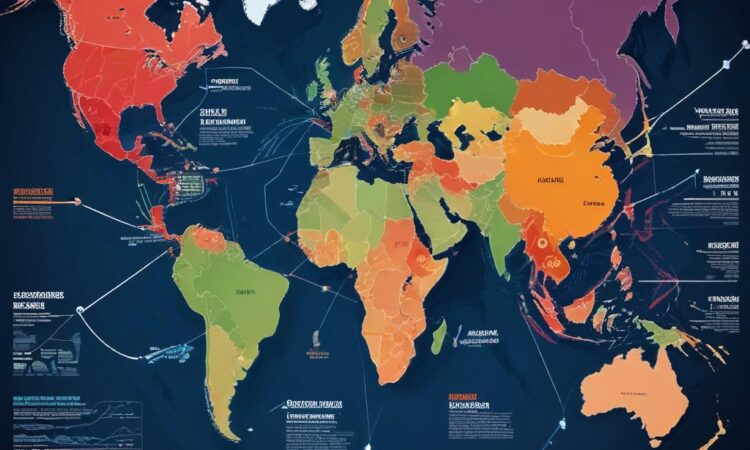Global Trade and Geopolitical Tensions: Navigating a Complex Landscape
The world economy is increasingly interconnected, with global trade serving as a crucial engine for growth and prosperity. However, this intricate network of trade flows is susceptible to disruptions, particularly in the face of escalating geopolitical tensions. Trade wars, sanctions, and other geopolitical events are impacting global trade flows, supply chain stability, and business operations, creating a complex and volatile environment for businesses to navigate.
The Impact of Trade Wars
Trade wars, characterized by tariffs and other trade barriers imposed by countries on each other’s goods and services, have become a recurring feature of the global economic landscape. The most notable example is the ongoing trade war between the United States and China, which has disrupted global supply chains and led to increased costs for consumers and businesses. The impact of trade wars can be felt across various sectors, from manufacturing and agriculture to technology and energy.
Impact on Businesses
Businesses are facing significant challenges due to trade wars. Increased tariffs raise input costs, making it more expensive to produce and import goods. This can lead to reduced profits, price increases for consumers, and job losses. Moreover, the uncertainty created by trade wars can discourage investment and innovation, hindering long-term economic growth.
Impact on Consumers
Consumers are also affected by trade wars. The higher prices for imported goods can reduce purchasing power and strain household budgets. Moreover, trade wars can disrupt supply chains, leading to shortages of certain goods and products.
The Role of Sanctions
Sanctions are another form of economic pressure used by governments to influence the behavior of other countries. These sanctions can target specific individuals, businesses, or sectors of the economy. While sanctions can be effective in achieving certain political objectives, they can also have unintended consequences for the global economy.
Impact on Businesses
Businesses operating in countries subject to sanctions face significant risks. They may be unable to access international markets, secure financing, or conduct transactions with sanctioned entities. These restrictions can lead to lost revenue, reduced investment, and disruptions to business operations.
Impact on Global Trade
Sanctions can also have a broader impact on global trade. They can disrupt supply chains, increase prices for certain goods, and create uncertainty in the market. This can discourage investment and limit economic growth.
Other Geopolitical Events
Beyond trade wars and sanctions, other geopolitical events can also disrupt global trade flows. These include political instability, natural disasters, and conflicts. These events can cause disruptions to transportation routes, damage infrastructure, and create barriers to trade.
Impact on Supply Chains
Geopolitical events can have a significant impact on global supply chains. They can disrupt production, transportation, and distribution processes, leading to delays, shortages, and increased costs. This can have a ripple effect across various industries and sectors.
Navigating the Challenges
The increasing geopolitical tensions and their impact on global trade present significant challenges for businesses. To navigate these complexities, companies need to adopt a strategic approach that includes:
Diversification
Diversifying supply chains by sourcing goods from multiple locations can reduce reliance on any single country or region and mitigate the risks associated with geopolitical events.
Risk Management
Developing robust risk management strategies to identify and assess potential threats to trade flows is essential. This includes monitoring geopolitical developments, assessing potential impacts on supply chains, and implementing contingency plans.
Government Engagement
Engaging with government officials to advocate for policies that promote free trade and minimize the impact of geopolitical tensions is crucial. This includes lobbying for trade agreements, reducing trade barriers, and supporting efforts to resolve global conflicts.
Looking Ahead
The future of global trade is uncertain, with geopolitical tensions likely to continue to shape the landscape. Businesses need to be prepared for the challenges ahead and adopt strategies to mitigate risks and navigate the complexities of the global trade environment.
Conclusion
Global trade is a vital driver of economic growth and prosperity. However, the increasing geopolitical tensions pose significant challenges to its stability. By understanding the impact of trade wars, sanctions, and other geopolitical events, businesses can develop strategies to mitigate risks, diversify supply chains, and navigate this complex landscape.

